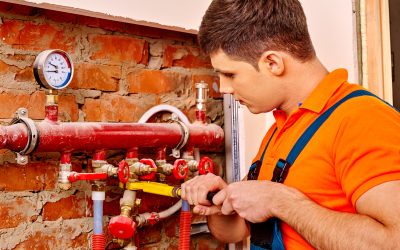There are multiple ways to provide a building with hot water, but the most common is the storage tank system, which is a tank used to hold the heated water attached to some method of applying heat to it. The two most common heating systems use either electrical resistance or natural gas. Not surprisingly, the way they function will vary because of this, although a few things are similar. For instance, both types of appliances will need a working pressure relief valve. This valve is a safety feature which should prevent the tank from exploding if the internal pressure of the unit gets too high.
Electric water heaters are often preferred by a new homeowner simply because they have fewer maintenance concerns. The electric unit is actually fairly simple, having a water tank, one or more elements inside the tank for heating that water and a thermostat to control each element. There are a couple of concerns, however, including a possible short in an element that could allow the appliance to continue heating, even when it should be off. This fault is often noticed when extremely hot water comes out of the tap or the water heater frequently trips the safety switch. The latter occurs when the tank reaches a specific temperature which then triggers the safety. The most common water heater service to solve this problem is the replacement of blown elements and their matching thermostat.
Gas systems tend to be more durable, but this may be due to the way they handle the burning of volatile fuels. One of the more important areas to focus on when checking out the appliance is the exhaust. This system should have an adequate exhaust so the gases don’t come into the home. Gas water heaters are typically placed in garages or outbuildings to avoid concerns such as exhaust fumes. Unlike the electric unit that heats the water inside the tank, the gas system heats the tank and that heat is then transferred through the metal to the water. This can allow the scale to flake up along the base of the tank and eventually reduce its heating ability.



